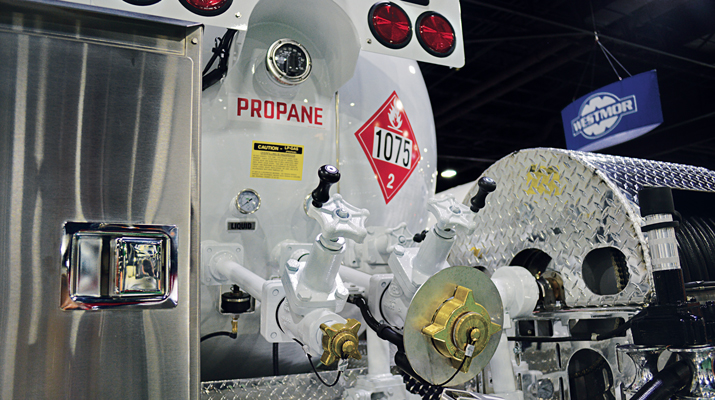Energy developments abound despite ongoing budget, deficit issues
The election is almost over and the results are almost in. I hope your candidates win.
I also hope there is a clear electoral mandate for the president and not a razor-thin majority in the House and Senate. Because no matter which party wins this hard-fought and often bitter campaign, the range and depth of issues facing Congress and the White House are broad, deep and complex. Finding solutions will be challenging in the next session of Congress – and certainly in a lame-duck session.
As the “fiscal cliff” approaches, especially in a weak economy, the nation’s deficit and budget outlook impact all of the issues facing Congress. Budget and deficit issues will dominate the agenda, but let’s discuss a few others related to energy that are also likely to gain attention after the election.
The Keystone XL Pipeline, the TransCanada Corp. project to bring heavy crude oil from Canadian oil sands through the Great Plains to deepwater ports on Texas’ Gulf of Mexico coast, has the promise of thousands of American jobs and will enhance the world supply of oil. After winning approval from the federal government and court challenges, the southern portion of the pipeline is being built, although not without controversy and some protest. The northern section is awaiting environmental review and approval from the U.S. Department of State.
With the election now over, the many issues related to this pipeline will get more attention than the somewhat misleading debate of gasoline prices and production during the election.
Like the pipeline issues, extracting natural gas through the process of hydraulic fracturing faces controversy and protest. Fears of groundwater contamination, potential earthquakes and overland degradation from heavy equipment and trucks are the main focus of its critics. As science and practice prove those fears wrong, the politics and economics of retrieving shale gas (and natural gas liquids) through “fracking” make a strong case, especially with so many states sitting on top of gas reserves that stand to benefit from the economic impact.
Republicans favor natural gas because of its huge domestic production potential, and Democrats like natural gas as a clean energy bridge to the future in the absence of a strong renewable energy policy. With half the carbon emissions of coal, natural gas makes a strong case to anti-fracking activists in the context of climate change and reducing the nation’s carbon footprint.
Tax policy is another major area that impacts business and energy policy. As part of the “grand bargain” that includes a major restructuring of the tax code, business, in return for substantial reduction in the corporate tax rate, will have to offer up reductions or eliminations of some of their favorite benefits. Republicans on the campaign trail said oil and gas subsidies are on the table along with the wind energy tax credit. In a partisan battle to reach an agreement to both cut tax rates and raise revenue, all benefits (including alternative motor fuels) are on the table.
Lastly, the president-elect and Congress face an enormous challenge in world affairs. In our interdependent global energy economy, America’s foreign policy toward Afghanistan, Iran, Syria and the South China Sea is always vulnerable to crisis, whether manmade or not. Focus on domestic energy priorities and developing and using American resources wisely takes on an added urgency in light of the treasure and blood America invests and sacrifices abroad.
So what matters and what’s next? In the end, regardless of party, leadership matters. Minority and majority leaders of the opposition party can’t spend another four years working to defeat incumbents. The political blame game doesn’t produce results. Drawing lines in the sand on single issues and creating party pledge lists only creates partisan divides.
The elections are really never over. It is time to prepare for the next election cycle now and demand that our elected officials identify solutions, work toward compromise and put America – not their jobs – first. LPG
Lisa Bontempo was a longtime energy lobbyist, including 13 years with NPGA. She remains involved in national politics and can be reached at lisabontempo@msn.com.
















